German President Joachim Gauck arrived in Malta this afternoon for a brief state visit, with a programme that includes a visit to the Marsa Open Centre.
Accompanied by his domestic partner, journalist Daniela Schadt, Mr Gauck landed at the Malta International Airport this afternoon and subsequently brought to Valletta, where an official welcoming ceremony at St George's Square in Valletta.
The German President then proceeded to the Palace in Valletta where he met his Maltese counterpart Marie-Louise Coleiro Preca.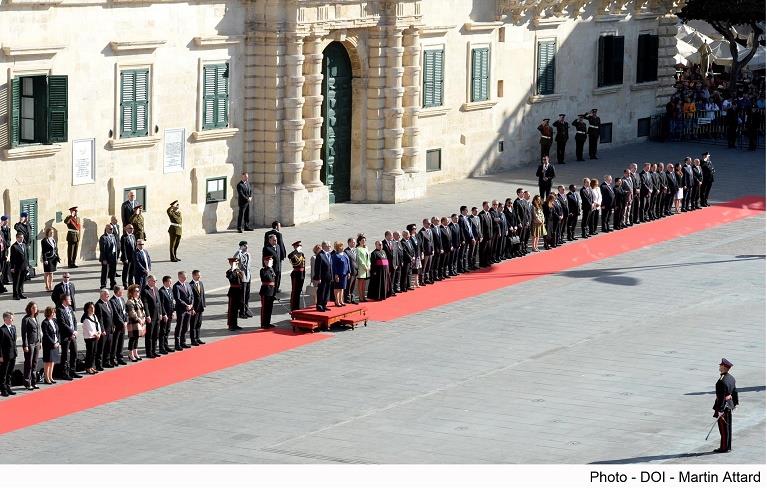
Mr Gauck will be meeting Prime Minister Joseph Muscat at San Anton Palace tomorrow morning, before heading off to the Marsa Open Centre. He will then meet with a number of NGOs at the Phoenicia Hotel in Floriana.
A wreath-laying ceremony at the War Memorial will follow, before the German President heads to the Auberge de Castille and for a visit of the nearby Upper Barrakka Gardens, a customary item in the agenda of visiting dignitaries.
The President will then pay a visit to the St John's Co-Cathedral before returning to San Anton Palace, where Opposition Leader Simon Busuttil and Speaker Anġlu Farrugia will be making a call.
He will be departing for Berlin at around 7:25pm.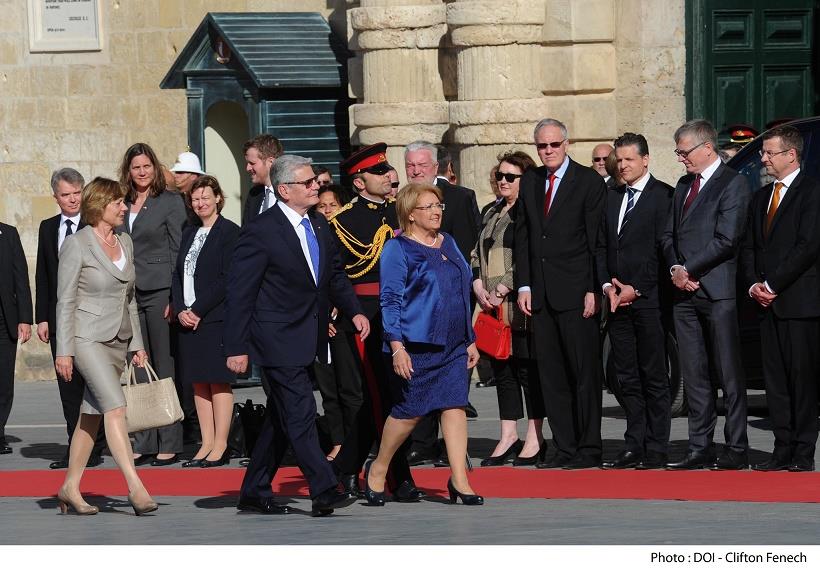
Tomorrow, Ms Schadt will be separately visiting the Jesuit Refugee Services offices at St Aloysius College, Birkirkara, as well as MCAST.
To some extent, the office of President of the Federal Republic of Germany mirrors that of its Maltese counterpart as it is a largely ceremonial role, although presidential elections are nevertheless held in Germany.
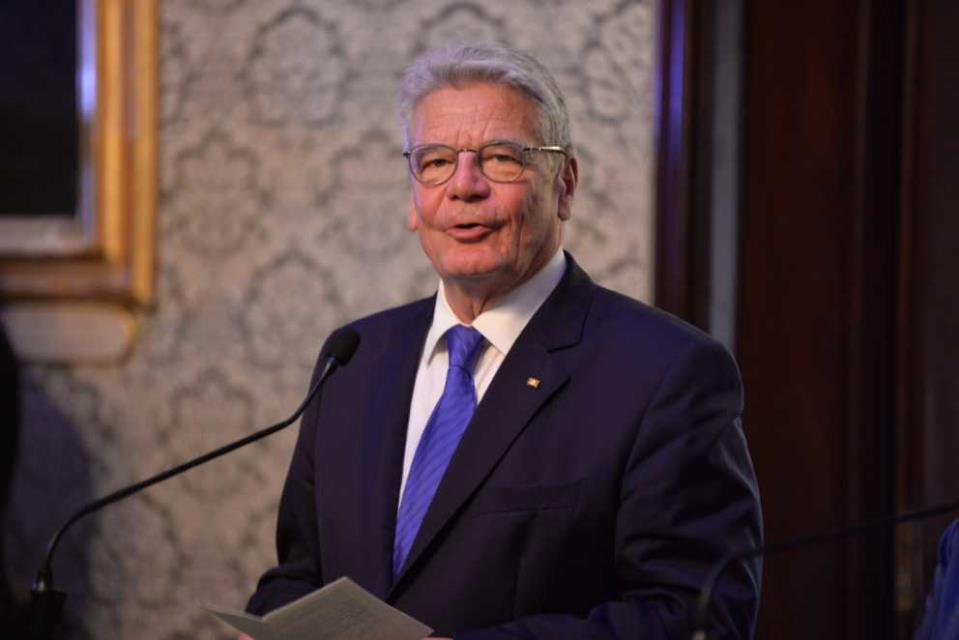 Mr Gauck is the eleventh President of Germany, having been elected for a five-year term in 2012.
Mr Gauck is the eleventh President of Germany, having been elected for a five-year term in 2012.
He had come to prominence as an anti-communist civil rights activist in the former East Germany, which his hometown Rostock became part of after the Second World War.
His father and namesake, a naval officer, had been arrested by Soviet occupation forces in 1951 and convicted of espionage for receiving a letter from the west, and for anti-Soviet demagogy for his possession of a western journal on naval affairs, and deported to a Siberian gulag.
He was freed in 1955, and Mr Gauck credits his father's ordeal with inspiring his own political activities.
Mr Gauck had refused to join the communist youth movement, even though this meant that he was unable to become a journalist as he wished. He ended up studying theology and becoming a pastor primarily because this provided him with an opportunity to study philosophy. For many years, he was under observation by the Stasi, who described him as an "incorrigible anti-communist" in their files.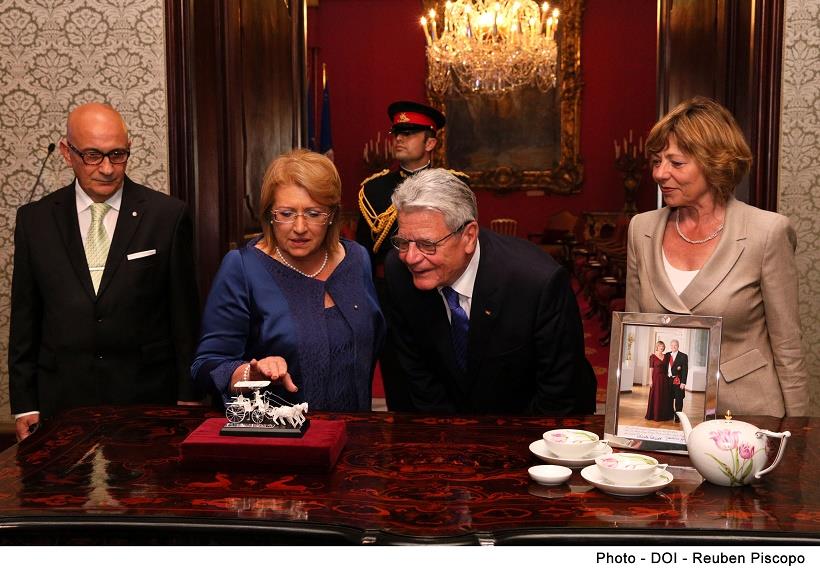
Following German reunification, he was the first Federal Commissioner for the Stasi Records, responsible for preserving Stasi archives and investigating their actions, and earned a reputation as a tireless "Stasi hunter" for his efforts in uncovering their crimes.
In 2010, he was nominated by the Social Democratic Party and by the Greens as their candidate for President, although he belonged to neither party, but was defeated by Christian Wulff, nominated by the governing coalition led by the Christian Democratic Union.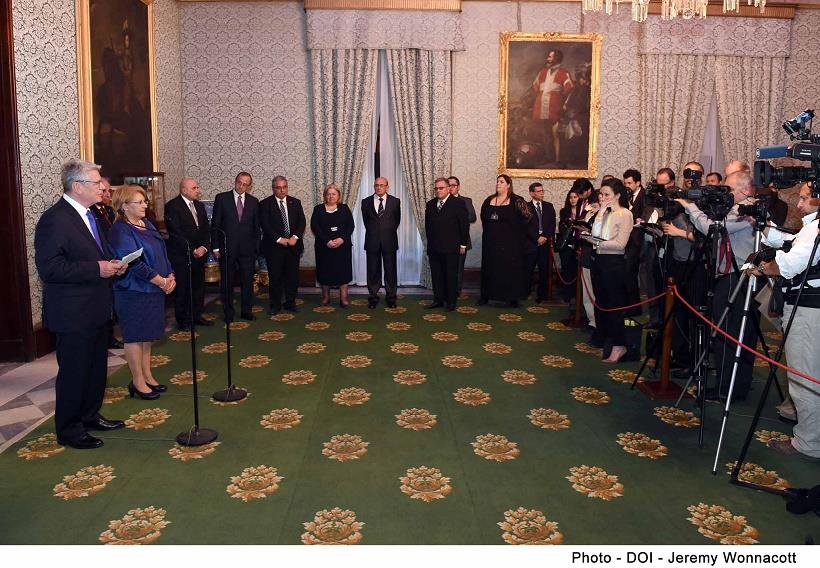
But Mr Wulff had to step down in 2012 following corruption allegations dating back to before his presidency, and this time round, the governing coalition also endorsed Mr Gauck. The only opposition to Mr Gauck's nomination within parliament came from the legal successor of the East German communist party, Die Linke.
(Pictures by Anthony Sultana)